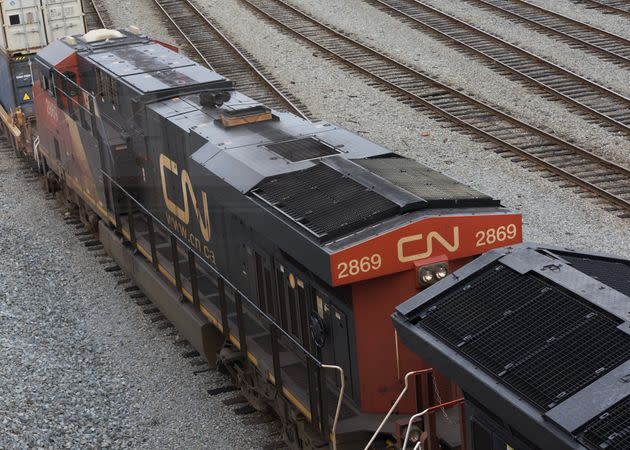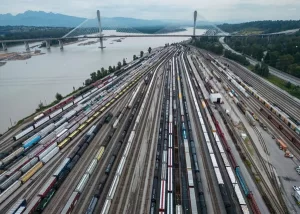Canada Takes Action to Resolve Rail Dispute and Prevent Supply Chain Disruption
3 min read

In a decisive move to address an industrial dispute that recently halted operations of two major Canadian railways, Canada’s federal government has intervened to restore freight services and safeguard North American supply chains. Labour Minister Steve McKinnon announced that railway operations should resume “within days” as the government has directed both parties involved to final binding arbitration.
The disruption began when Canadian National Railway (CN) and Canadian Pacific Kansas City (CPKC) locked out nearly 9,300 workers last Thursday. This action followed a breakdown in negotiations with the Teamsters union, which represents the workers. The lockout threatened significant disruptions, as Canada exports about 75% of its goods to the US, predominantly by rail. The industrial action could have impeded the movement of essential commodities, including grains, beans, potash, coal, and timber.
“Workers, farmers, commuters, and businesses depend on Canada’s railways every day, and they will continue to do so,” McKinnon stated. “It is the government’s duty and responsibility to ensure industrial peace in this critically vital sector.”
Given Canada’s vast size and heavy reliance on rail transport for moving goods, the government’s intervention reflects the importance of maintaining smooth operations in the rail sector. The government emphasized that while it supports the collective bargaining process, it was necessary to use its powers under the Labour Code to ensure that vital goods and trade were not disrupted.
Under the new directive, the Canada Industrial Relations Board will resolve the disputes related to collective agreements. Additionally, the Board will extend the terms of the current agreements temporarily, enabling workers to return to their jobs as soon as possible. Labour agreements for both railways had expired at the end of the previous year, and despite extended negotiations, no deal was reached before the lockout.
The negotiations had grown increasingly contentious, with both CN and CPKC accusing each other of failing to negotiate in good faith. Both railways had called for binding arbitration as a solution. CN expressed satisfaction with the government’s intervention, stating, “The Company is disappointed that a negotiated deal could not be achieved at the bargaining table despite its best efforts.”
 Keith Creel, CEO of CPKC, supported the government’s decision, acknowledging that it acted “to protect Canada’s national interest.” He expressed regret over the need for government intervention but recognized the gravity of the situation, stating, “We regret that the government had to intervene because we fundamentally believe in and respect collective bargaining; however, given the stakes for all involved, this situation required action.”
Keith Creel, CEO of CPKC, supported the government’s decision, acknowledging that it acted “to protect Canada’s national interest.” He expressed regret over the need for government intervention but recognized the gravity of the situation, stating, “We regret that the government had to intervene because we fundamentally believe in and respect collective bargaining; however, given the stakes for all involved, this situation required action.”
Before the arbitration decision was announced, François Laporte, National President of Teamsters Canada, highlighted safety concerns as a major issue for his union. “Across Canada, we have trains carrying goods, energy, and chemicals,” Laporte explained. “We want to ensure these trains are operated by workers who receive proper rest, who are safe, and who are not fatigued.”
The intervention by the Canadian government aims to balance the immediate need to restore railway operations with the ongoing requirement for effective collective bargaining. This action underscores the crucial role that railways play in Canada’s economy and the necessity of resolving industrial disputes to prevent significant disruptions in trade and supply chains.